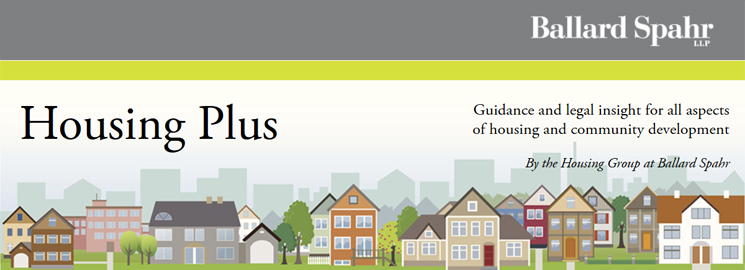
 Public housing needs all the help it can get. Its 1.1 million units of deeply affordable housing have been grossly underfunded by Congress for so many years that current studies indicate it would take over 30 billion dollars of investment (yes, that is “billion” with a “b”) to bring these units up to modern standards. While HUD’s Rental Assistance Demonstration Program (RAD) has provided a new tool for public housing authorities to leverage much-needed private capital by taking units out of the portfolio, at the same time, public housing properties that are not good candidates for RAD have continued to use the authority to demolish and dispose of property as a vehicle for accessing the land value to invest in more affordable housing. The co-existence of these two options has enabled housing authorities to use one or both of these tools to make the most of their assets.
Public housing needs all the help it can get. Its 1.1 million units of deeply affordable housing have been grossly underfunded by Congress for so many years that current studies indicate it would take over 30 billion dollars of investment (yes, that is “billion” with a “b”) to bring these units up to modern standards. While HUD’s Rental Assistance Demonstration Program (RAD) has provided a new tool for public housing authorities to leverage much-needed private capital by taking units out of the portfolio, at the same time, public housing properties that are not good candidates for RAD have continued to use the authority to demolish and dispose of property as a vehicle for accessing the land value to invest in more affordable housing. The co-existence of these two options has enabled housing authorities to use one or both of these tools to make the most of their assets.
On October 16th, HUD issued a proposed new rule which would make some significant changes to one of these tools – the approval process for demolition and disposition of public housing property. A summary of the proposed changes is included in our E-Alert of October 24. The 40-plus page notice describes proposed changes to the approval process that track informal policies that HUD has been following for some time, creates some additional review criteria, and, in some limited cases, provides new opportunities for housing authorities to redevelop sites as affordable housing without a separate demolition/disposition application.
Of particular concern is the proposal to require the proceeds from the disposition of public housing properties to be placed in segregated accounts and effectively treated as if they were appropriated by Congress with Federal restrictions and obligation and expenditure deadlines. Sale proceeds have long provided a source of more flexible funds that have allowed housing authorities to use their land assets strategically for long term, holistic redevelopment efforts, in addition to the creation of more affordable housing units. In order for public housing to continue to succeed in a variety of different markets, especially in high cost areas, housing authorities need this latitude.
Even worse, the proposal to treat these funds as if they were Federal funds potentially makes them susceptible to recapture and off-set. It was only a few years ago that Congress used the fact that housing authorities had reserve funds as an excuse to cut the Public Housing Operating Fund appropriation by 25 percent. Attempting to treat these funds as federal funds does nothing more than give Congress another reason to cut funding for already underfunded public housing accounts.
Public housing needs more tools and more flexibility, not more restrictions. Hopefully, the comments to the proposed rule, due on December 15th, will encourage HUD to re-think some of the proposals in the rule, particularly the attempt to “federalize” land sales proceeds. Public housing is already challenged in the appropriations process. It is counter productive for HUD to provide another excuse for Congress to further divest from the program.